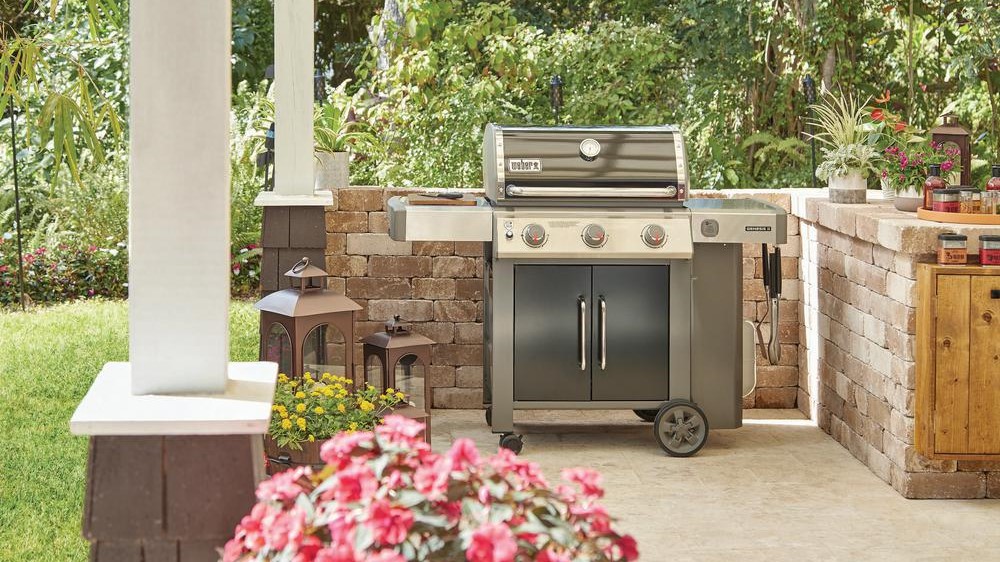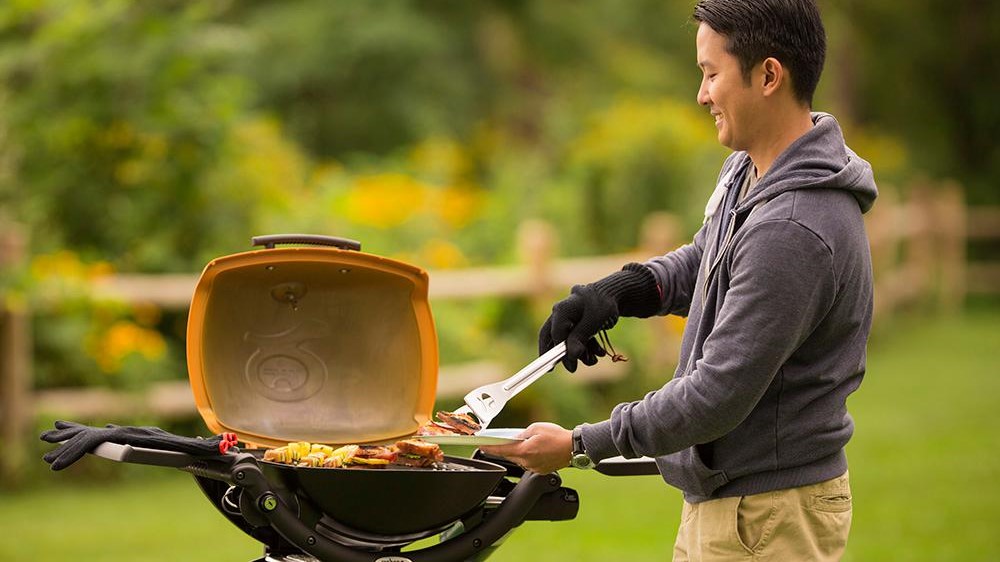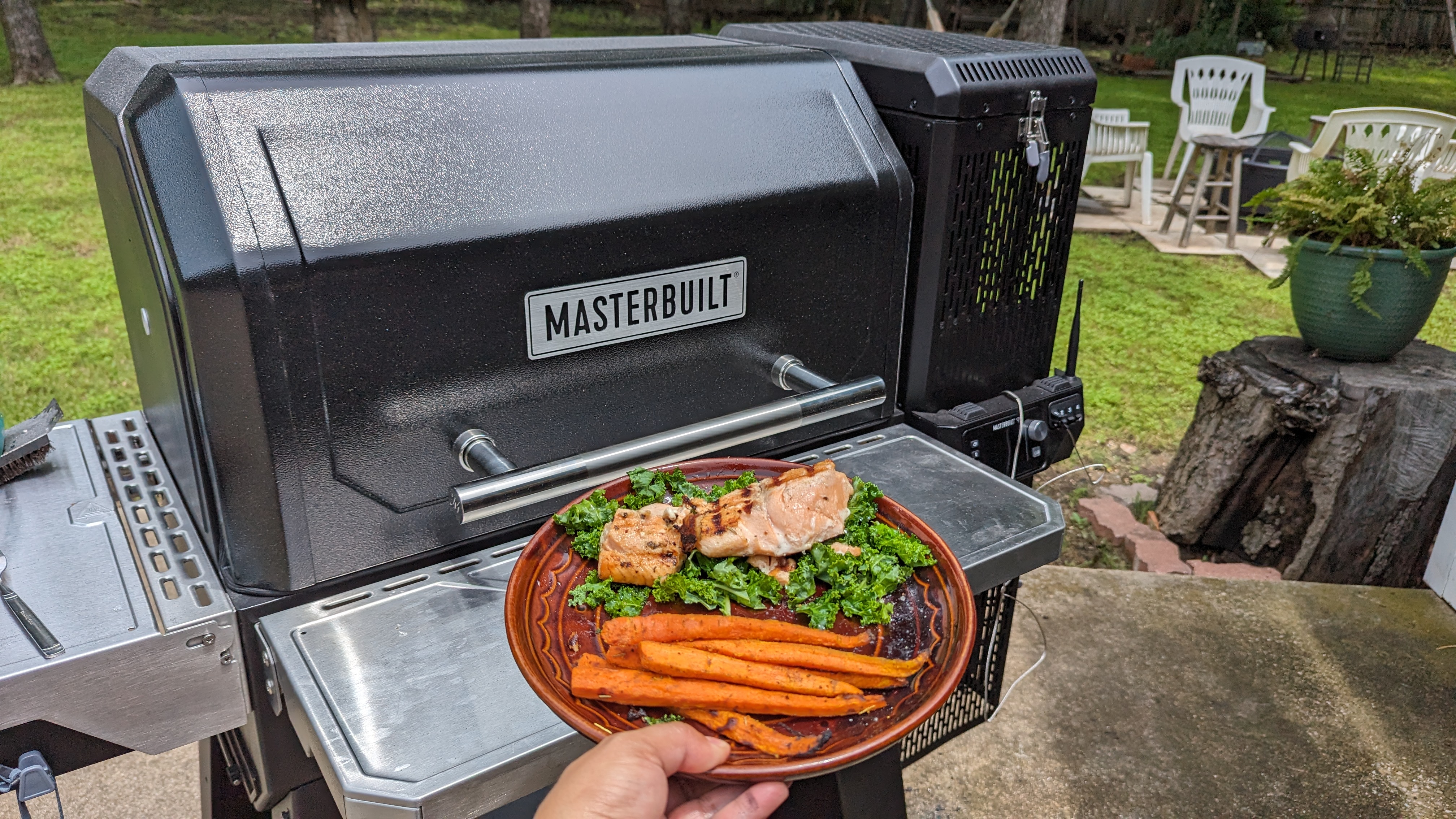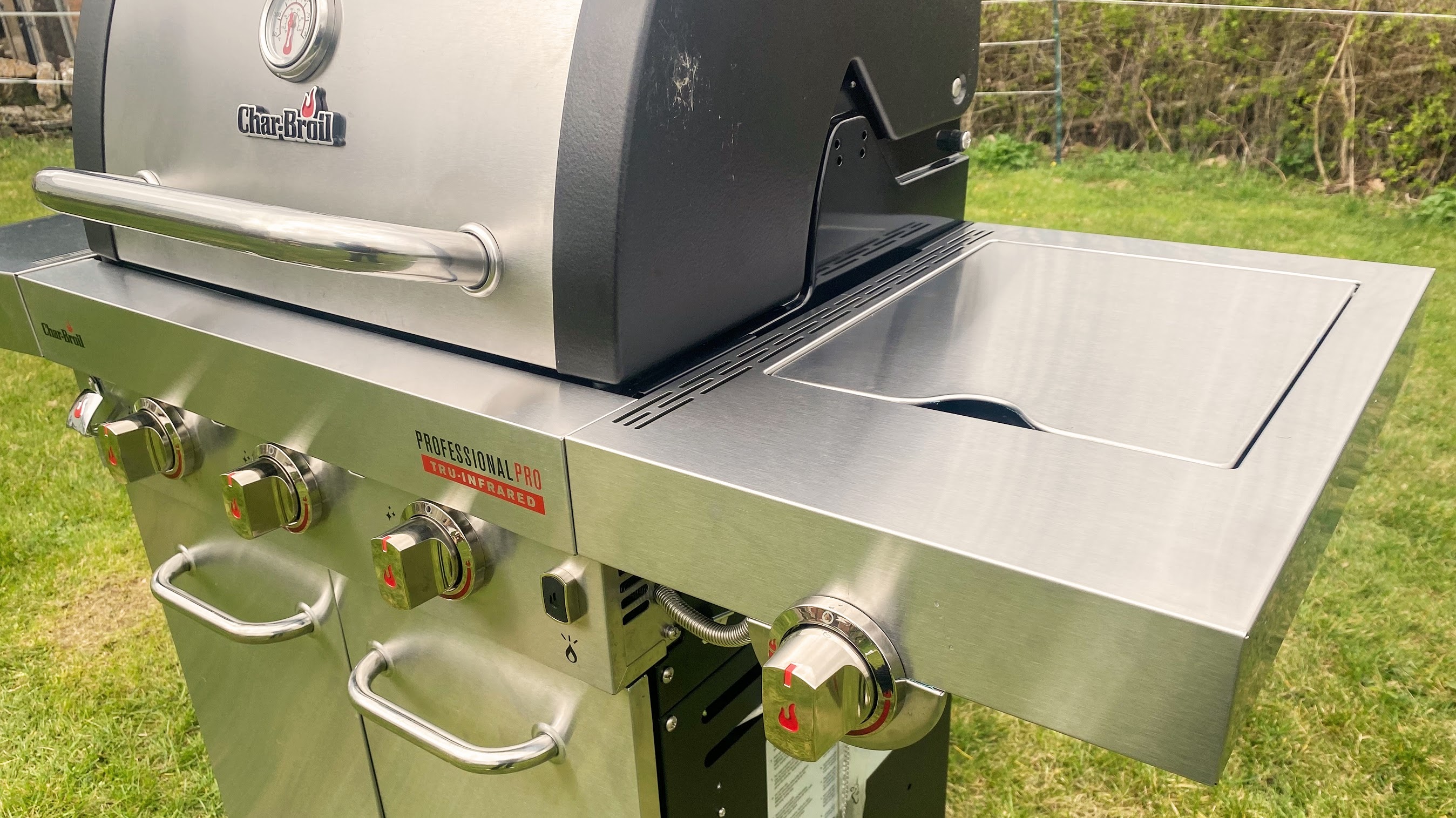Natural gas grills are popular because of their cost-effectiveness, convenience, and safety features, but propane grills offer many advantages, including portability and energy efficiency.
Both natural gas and propane grills have strengths and weaknesses, which is why so many manufacturers, like Weber and Char-Broil, offer both. Natural gas grills must be installed in your home, which can take a while. However, once installed, they burn cleaner and provide endless fuel, making them a great choice if you already have a gas line.
However, propane gas grills are portable. Since propane tanks can be transported along with the grill, they offer more flexibility. While propane tanks can run out during use, they're easy to replace at many stores and can even be refilled.
It's important to remember, though, that you must refill the propane depending on how often you use it. Running out of gas during a barbecue can be frustrating, especially if you're grilling in a larger area.
To help you choose the best gas grill for your home, we've weighed the pros and cons of natural gas and propane. If you don't want gas, you can also get infrared grills, but they cook differently and have a different flavor profile.

Natural gas vs propane grills: Price & value
Natural gas can be expensive to install if you don't already have it. Some services will install it for free if your house is near a natural gas main. However, if you live far from a natural gas main, you'll probably have to pay for the extension to your house.
Although the upfront costs might be significant, in the long run, you'll only pay about one-third of what you'd pay for propane. While it's embarrassing to run out of propane during a barbecue, most grills have a gauge that lets you know when your propane is running low, so it shouldn't be a problem.
If you run out of propane, it's usually only a temporary inconvenience. It's easy to get propane at supermarkets and convenience stores. You might even be able to get propane delivered to your door in some areas, so it's even less of an issue.
There's a big difference in upfront and long-term costs between natural gas and propane, so let's look at it. You need a professional to install a gas line, which can be expensive depending on where you live, so natural gas grills generally cost more upfront. To operate a propane grill, you just need the grill and a propane tank.
In terms of long-term costs, natural gas is cheaper than propane. The cost of propane gas grills will vary depending on how often you use them.

Natural gas vs propane grills: Features & functions
Setting up a natural gas grill can be a bit complicated, but once it's set up, you'll enjoy it. Just turn on your grill and use your home's natural gas to fuel it. No more trips to the store to swap out propane tanks.
Getting started may be tricky, but there is a lot of information online. For example, you can get step-by-step instructions for connecting your grill to a natural gas conversion kit. The kit usually comes with a manual and sometimes an accompanying online video.
Your gas company should install a gas line leading to your back porch if you don't already have one. You don't want to try this yourself unless you have the skills to do it.
If you plan to barbecue at a remote cabin in the mountains, you should have a backup propane tank on hand. In some places, connecting to a natural gas main might not be feasible, so propane can be useful.

Natural gas vs propane grills: Performance
People prefer propane over natural gas for several reasons.
First, propane has more energy than natural gas, with 2,500 BTUs per cubic foot compared to just 1,000 BTUs. Because of this, propane can cook your favorite barbecue dishes with plenty of heat, making it popular among barbecue enthusiasts.
Natural gas vs propane grills: Maintenance
In terms of carbon footprint, natural gas and propane are relatively low on the CO2 emissions scale. They contribute less to global warming than gasoline, kerosene, and coal.
While natural gas burns cleaner than propane, both are environmentally friendly compared to other fuels.
Grilling with charcoal isn't as energy efficient as using natural gas or propane, and it produces a lot more pollution.
Propane and natural gas are both relatively safe fuel sources, but they have some important differences. Propane is non-toxic and generally less flammable than natural gas, with a narrower flammability range. Propane only burns if the ignition source reaches at least 920°F.
Propane is heavier than air, which means it can sink and concentrate in lower areas, increasing the danger of a leak. In contrast, natural gas rises and disperses better.
Since propane has a higher British Thermal Unit (BTU) value per cubic foot than other fuels, it's often considered more energy-efficient. Nevertheless, natural gas is recognized as the greener option when it comes to burning, despite propane actually producing fewer greenhouse gases per unit of energy, which means it heats faster and generally leads to reduced fuel consumption.
Natural gas vs propane grills: which is better?
Natural gas and propane grills both have their advantages, and you can't go wrong with either.
Investing in a natural gas grill is worth it because of the savings, environmental benefits, and overall convenience.
Depending on your location, setup requirements, and personal preferences, some people may prefer propane gas grills.

